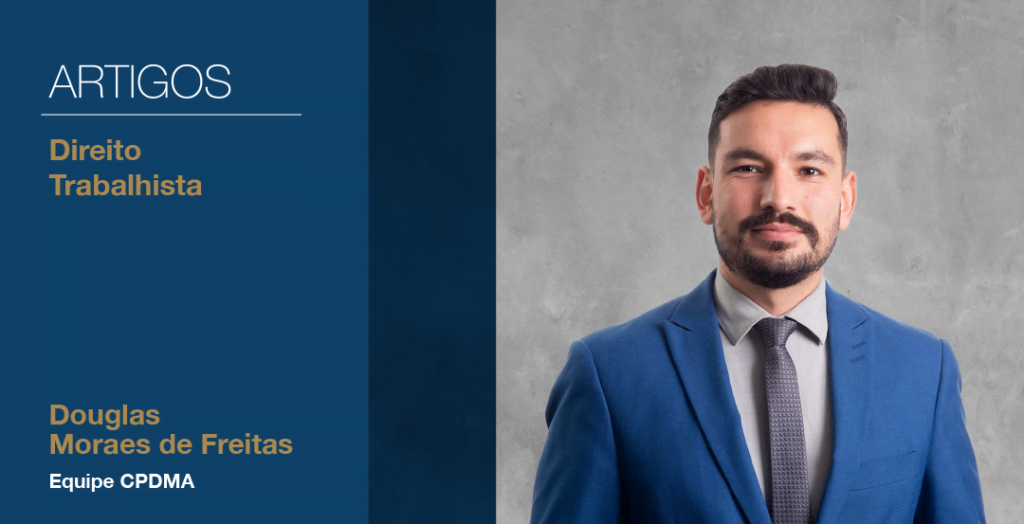In the age of technology, the start-up ecosystem has attracted many people in recent decades. This is mainly due to the rapid rise of the digital economy, which has led to many success stories of companies that today represent giant players in the market, regardless of the sector in which they operate. In this context of scalable entrepreneurial initiatives, startups have shown themselves to be a huge attraction [...]
CPDMA BLOG
Special labor payment plan: a strategy to give companies more breathing space.

Labor enforcement is the phase of the process where the necessary acts take place to pay the credits or obligations recognized in the sentence or judgment, as well as those resulting from unfulfilled agreements.
The rites governing the execution phase in labor proceedings are regulated in the Consolidation of Labor Laws, in its Chapter V, as set out in articles 876 to 892.
The so-called forced execution, however, does not always achieve its objectives in the best way, especially when the debtor is the defendant in several lawsuits of the same nature - the attachable assets are limited and the multiplicity of executions ends up resulting in a simple race by creditors in search of these assets.
In order to prevent the frustration of executions and, to a certain extent, the unfeasibility of the debtor's activity, in February 2018 the Superior Labor Court made it possible to implement the Special Labor Payment Plan (PEPT), through the Provision CGJT : No. 1 of February 9, 2018. Subsequently, the provision was revoked due to the publication of new provisions on the Plan, as established in CGJT Provision No. 01 of August 19, 2022, currently in force.
The Special Labor Payment Plan (PEPT) aims to give effect to court decisions and fulfill the obligations contracted by the debtor party, while at the same time enabling the continuity of the company's economic activity, with the equitable payment in installments of labor debts by large debtors in favor of the collectivity of creditors.
The request to implement the Special Labor Payment Plan is made directly to the Corregidor of the competent Regional Court.
For consideration by the competent TRT, it is necessary to present the consolidated Payment Plan, including the estimated interest and monetary correction until it is fully complied with, and the payment may be set at a variable period and amount, respecting the maximum period of six years for the debt to be fully paid. It is important to note that payment requirements and deadlines may vary according to each TRT's own ordinance.
The purpose of the PEPT is to include all the cases in the definitive execution phase listed when the application for the Plan is submitted, and it must encompass the debtor's total consolidated debt on that date. It is also permissible to make an express request for the inclusion of cases in the definitive execution phase that were initiated after the PEPT was granted, and it is up to the Regional Ombudsman's Office to assess the request.
Once the proposal has been submitted and the PEPT has been set up, the Regional Internal Affairs Office must submit its decision on the matter to the Full Court or Special Court Body. As soon as the plan is approved by the competent body, enforcement is suspended and any constrictive measures in the cases listed in the PEPT are prohibited, including any requests to open an Incident of Disregard of Legal Personality to redirect enforcement to the company's partners or directors. In other words, the plan suspends the execution of seizure warrants and orders to block amounts in the processes included, and also suspends auctions and auctions of assets seized in these processes.
Therefore, the Special Labor Payment Plan is an effective alternative for halting foreclosures, i.e. stopping the enforcement of expropriatory measures, both against the company and its partners or directors, with the aim of settling debts on a scheduled basis. Thus, the plan benefits the debtor company, which will be able to achieve financial reorganization, as well as the creditor parties, given the predictability of receiving this credit, as set out in the Plan.
Recent posts
Closing our series of posts on the Classes of Intellectual Property Assets, today we're going to look at the registration of COPYRIGHT. An author is the natural person who creates a literary, artistic or scientific work. Copyright protects such works and can be patrimonial (right to commercial exploitation of the work) or moral (claim of authorship, conservation [...]
On June 26, 2024, a new type of operation was published covering companies with a tax domicile in Rio Grande do Sul. This is yet another measure taken by the Federal Government to deal with the damage caused by the floods in Rio Grande do Sul. The new operation, called "SOS-RS Operation", was instituted by PGFN/MF Ordinance No. [...].
In our series of posts explaining the differences between the classes of intellectual assets, today we'll look at DOMAIN REGISTRATION. The protection of a website's electronic address (domain) is carried out at Registro.BR. In this case, the domain availability search is essential for registration. If a third party tries to register a [...]
Today's topic in our series of posts explaining the differences between classes of intellectual assets will be: SOFTWARE REGISTRATION. Software registration protects the computer program itself, i.e. the source code. Registration is essential for proving authorship of the development. It is done at the INPI [...]
In our series of posts explaining the differences between classes of intellectual assets, today we're going to look at INDUSTRIAL DESIGN. Industrial Design is the ornamental plastic form of an object - for example, the design of a product or the set of lines applied to a product, such as a print - that gives it [...]


